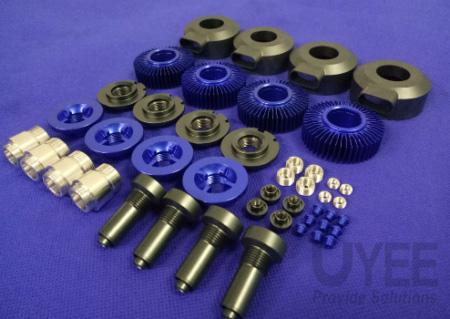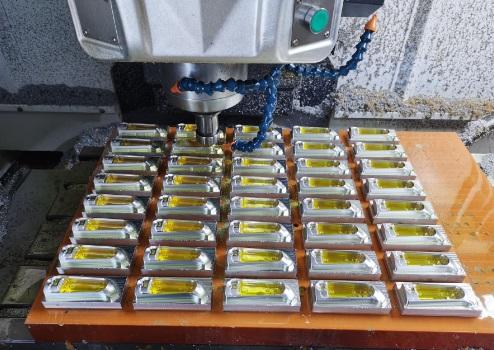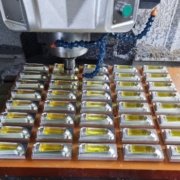The Process of Being Custom CNC Parts

For a single buyer, the current industry is growing increasingly specialized. Although the initial product contains certain typical foundation features, it is still tailored to a single client. It is due to an overall increase in manufacturing technological development, which increases service. Everyone would agree that we are all unique, and something built especially for you would better suit your needs than a typical product manufactured for everyone.
Take, for example, shoes. Many people have distinct shoe sizes for their left and right feet. Consider the fact that modern industry can create shoes just for your feet. When we talk about the industry, machine shops are at the top of Custom CNC Parts. They are the ones where a single customer can come to have a single part manufactured just for him. Sure, the cost of such a service is currently reasonably high, but it is lowering as new techniques are adopted. We can adapt each product for each client at some point. Here is a comprehensive guide to custom machined components that may help you understand the industry.
What Options Are There for Product Customization?
A consumer can obtain a customized product in a variety of ways:
- Personal development. For example, if a client already knows what part he needs, he can produce a sketch or even a 3D model of it and bring it to the machine shop to have it built.
- Development in collaboration. When customers are unsure about the design or look, this is a good approach for them to get their custom-designed and machined pieces. It necessitates the establishment of specific criteria for a machine shop, such as a design department. The customer and this department collaborate to produce the custom design.
- Adaptive personalization. This strategy simplifies the job of manufacturers while imposing a lot of constraints on buyers. The process entails designing a base portion that we may customize to meet the needs of the customer. Using this strategy, the manufacturer may produce vast quantities of products with some degree of personalization without spending much time readjusting the manufacturing process.
- Cosmetic customization entails designing a conventional product and a variety of distinct “styles” for it. As an example, different colors. It is the simplest method for creating custom CNC parts for mass production, but it only provides a basic level of customization.
Machine Shop Requirements
If a machine company wants to make single customized components for their customers, they must alter their products specifically. Bespoke machining entails a low volume of a large number of various pieces of manufacturing. It means that the producer will have to develop a new manufacturing process and CNC program for each part from the ground up, making CNC machining services for a new product easier.Given that there are thousands of different parts, each with its own set of material and geometrical specifications, reducing lead time is the most important and difficult one for the manufacturer to solve.
To reduce the time it takes to find resources, the manufacturer must keep standard stockpiles of the most common materials on hand. In addition, the shop should contain as many different machine tools as feasible. It’s a horrible strategy to lose orders because you only have two lathes and no grinding equipment. The same can get said for tools and cutters. The producer must be prepared to generate as many distinct parts as feasible. To put it another way, be prepared for anything.
Precision Machined Parts
We can find machined parts everywhere in our daily lives. We can understand details from simple designs, machining, labor done to every surface finish using diverse tooling in exact locations. Manufacturing these unique components necessitates either speedy and cost-effective right technology or extensive experience.
We have multi-axis machines that can turn, cross-drill, mill, and engrave workpieces all in the same machine. We can obtain tolerances of 0.0005′′, and versatile multi-tool 3,4,5 axis CNC machining can be as small as 0.010”. In any case, our CNC machining centers allow us to provide unique and integrated solutions that can help you minimize production time and manufacturing costs.

CNC Machining Of Custom Parts
Modern low volume production is not the same as mass production. With an increased need for custom milled parts, this sort of production is becoming increasingly popular. Therefore much research and development are directed at improving the efficiency of flexible manufacturing systems.
CNC machine tools play a significant role in part creation flexibility. Only 10-15 years ago, it took a lot of additive manufacturing to create a part with some complicated surfaces (i.e., to develop a pattern for a machine tool to keep up with the manual work required). Therefore complex components were primarily made for mass production or manual labor that was time-consuming and costly. All of those things get now replaced by CNC software. Furthermore, specific computer-aided manufacturing methods have to be developed, significantly reducing the time required to generate such a program. Modern tool mechanisms enable the maker to place many tools on the lathe, reducing the time required to replace them during the machining process.
We must develop a set of standardized fittings and jaws to fulfill most of today’s machining demands. Those fixtures are often made up of several discrete pieces that can be placed together on the machine tool’s operating surface to secure the part during the machining phase. True, they have less precision than specialist fixtures, but current measuring techniques have offset this disadvantage.
A customized touch probe can get placed on almost any current CNC machine tool. This probe gets used to measure the stock’s actual dimensions and position once it is repaired, effectively eliminating the locating error. We may also use it to measure the exact dimensions of the product at various production stages so that any errors may be found and remedied as soon as possible and as quickly as possible.
Conclusions
Recent advancements in manufacturing automation and computerization have significantly reduced the lead time required for the product to get built. A flexible manufacturing system, specially designed to produce a vast number of single unique parts, is the pinnacle of contemporary industrial development. All of this allows for lower rates for custom machined parts to get made for individual customers and consumers. It is possible to argue that machine shops will eventually be able to produce one-of-a-kind things for everyone.
Are you looking for a dependable prototyping firm or a custom manufacturer? We specialize in making machined parts from various materials using modern CNC machines and secondary finishing procedures. We have served numerous customers from different backgrounds with over twenty years of expertise, including giant corporations, small-medium-sized businesses, and hobbyists.

